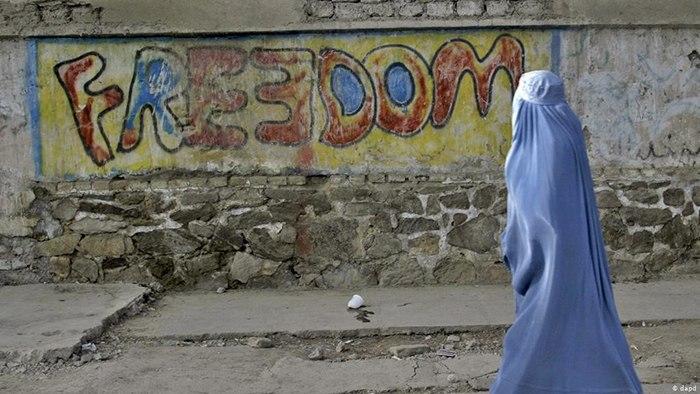The Taliban killed a female staff of the National Directorate of Security in Ab Kamari district of Badghis province recently. Local officials confirmed that she was shot in the hand of the Taliban insurgents but they remained silent about her torture and ill-treatment by the Taliban. After a month, Rahela Naderi, the head of women affairs directorate in Badghis, confirmed to Kabul Now that the Taliban before shooting her to death, had tied the victim on back of a motorbike and then dragged her on rocks.
The eastern Badghis province went through an increasing violence against women this year. According to local authorities at the Badghis Women Affairs Directorate, 30 cases of violence against women, including murder, have been registered in the province over past four months.
This comes while last year Badghis reported 36 cases of violence against women. Ms. Naderi says that she was shocked when she saw the body of the female victim. “I thought her body was burnt but the local officials said that she was dragged on rocks in unflat areas before being shot to death.”
For the first time in her life, she has faced such a horrific murder, she added.
Figures from Badghis Directorate of Women Affairs show that in 2019, six murder cases of women, including murder of a female officer, were recorded. Due to the sensitivity of female homicides, which include honor killings, local authorities cannot provide details on how other five women were killed.
Badghis is an insecure province in the west of the country. Taliban militants control many districts of the province. Women in Taliban-held areas do not have access to justice and women rights are violated. The Taliban often held kangaroo courts which end up in favor of men.
“More than 50 percent of cases of violence against women remain unreported. They are pursued in informal and extra-judicial procedures,” said Ms. Naderi. “We are concerned about extra-judicial procedure which may replace formal judicial procedures.”
Officials at Badghis Directorate of Women Affairs say that only 30 percent of cases of violence against women in the province are under investigation this year. Women rights activists in Badghis express concern about rise in honor killings. According to them, in many cases women are victims while men are being acquitted in the traditional society.
Murder and rape are the most common cases of violence against women in Badghis. There is a culture of impunity in Afghanistan and in some cases, the perpetrators of horrific violence against women flee to Taliban-held areas where rule of law are not implemented.
Ms. Naderi points to high level of violence against women in insecure districts. She says that last year in one month, out of 13 murder cases, nine were registered in Jawand district. “This is painful and we didn’t have access to cases of violence against women, which took place under the Taliban rule. Most women killed were accused of having extra-marital affairs.”
The Badghis Directorate of Women Affairs does not have direct access to Bala Murghab and Jawand districts. A limited number of women, disguised as doctors, travel to Qala-e-Naw, the provincial capital, to cover cases of violence and abuse against women.
Safia Aimaq, a former Badghis MP, told Kabul Now that women in Taliban-held areas have no rights or privileges and they are forced to stay at home. She is concerned about number of forced and early marriages in insecure areas. “In Taliban-controlled areas, young or even underage girls are forced to marry old men. Unfortunately, the lives of these young girls are being destroyed.”
In some districts, women presence in mainstream society is zero. Though almost two decades have passed from the rule of Taliban regime, little has changed in Badghis in terms of women rights. In some districts women are deprived of their basic rights including education, according to reports.
“A growing insecurity does not allow women work in the districts,” says Ms. Naderi.
A heavy presence of Taliban insurgents coupled with a dominate anti-women culture are the main challenge ahead of Badghis women. Women presence in public institutions is limited to Qala-e-Naw, the capital of Badghis province.
The recent killing of female staff of NDS has caused panic among women staffers in Qala-e-Naw, with many of them fearing the same scenario to be repeated. Warning that if security situation in Qala-e-Naw does not improve, Women rights activists in Badghis say the limited number of female employees will be forced to resign.
“Insecurity is on the rise in Badghis,” said Leila Noorzad, a women rights activist in Badghis. “The brutal murder of female government employee is worrisome. Women cannot easily walk around the city.”
“The only way to ensure justice for women is to establish third units where cases of violence against women should be registered,” says Ms. Naderi.




